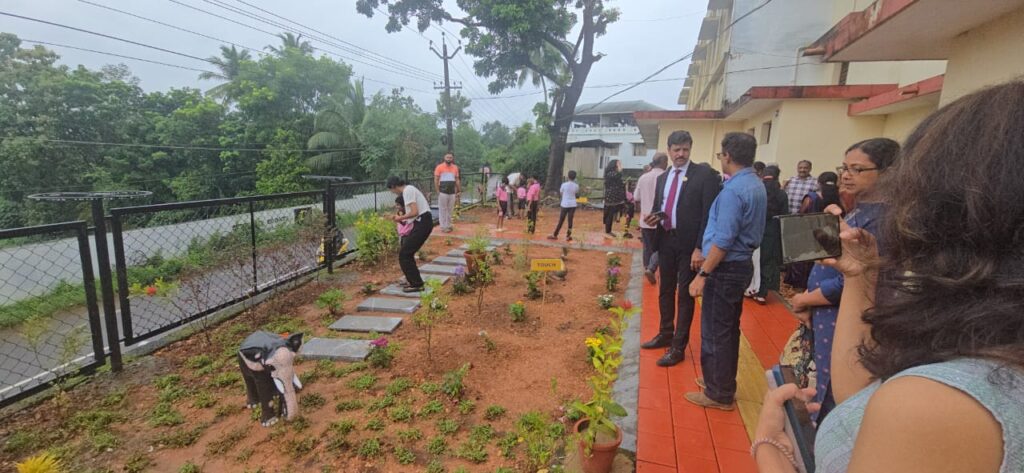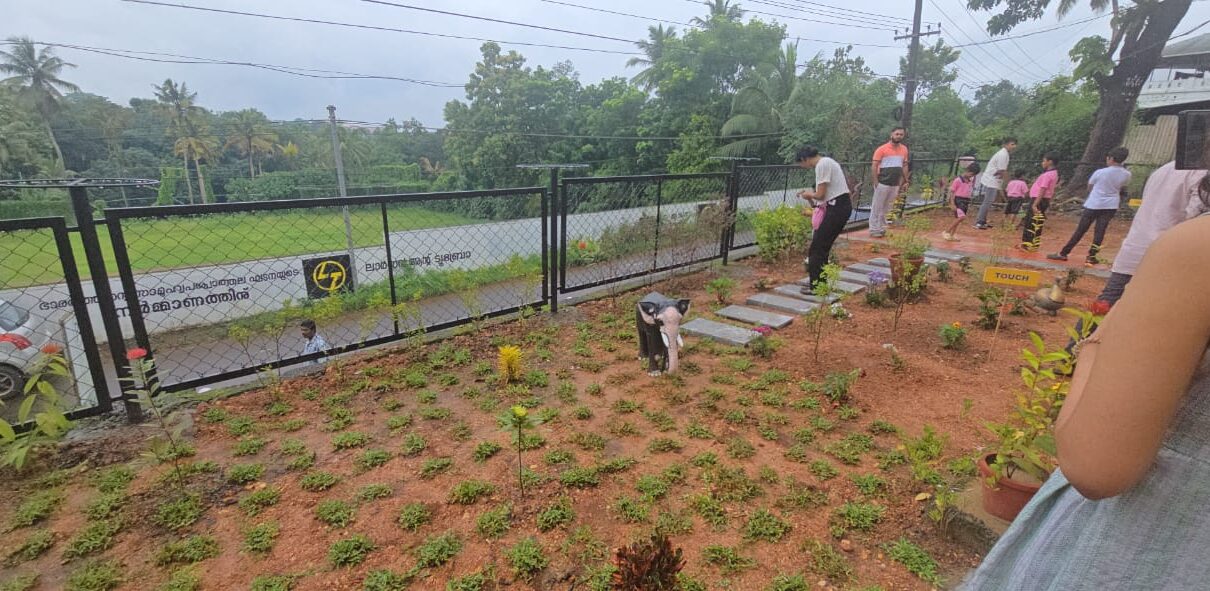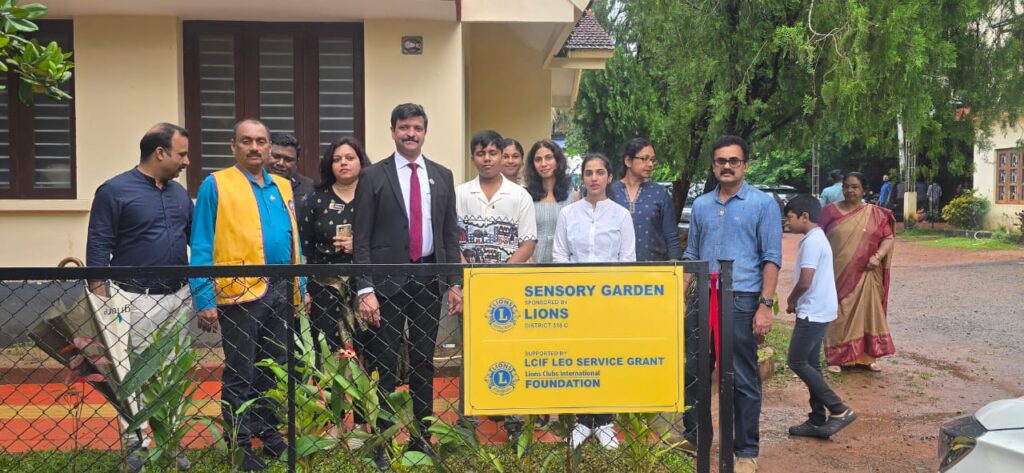
At the School for the Blind in Keezhmadu, Aluva, Kerala, a quiet corner has been transformed into a haven where nature can be felt, heard, smelled, and even tasted. This new Sensory Garden, created through a partnership between the Lions Clubs International Foundation (LCIF) and Leo District 318 C, offers visually impaired children a space to experience the richness of the natural world beyond what sight alone can offer.

For many children at the school, opportunities to explore nature are limited. The sensory garden opens that door, with carefully chosen features that encourage interaction and discovery.
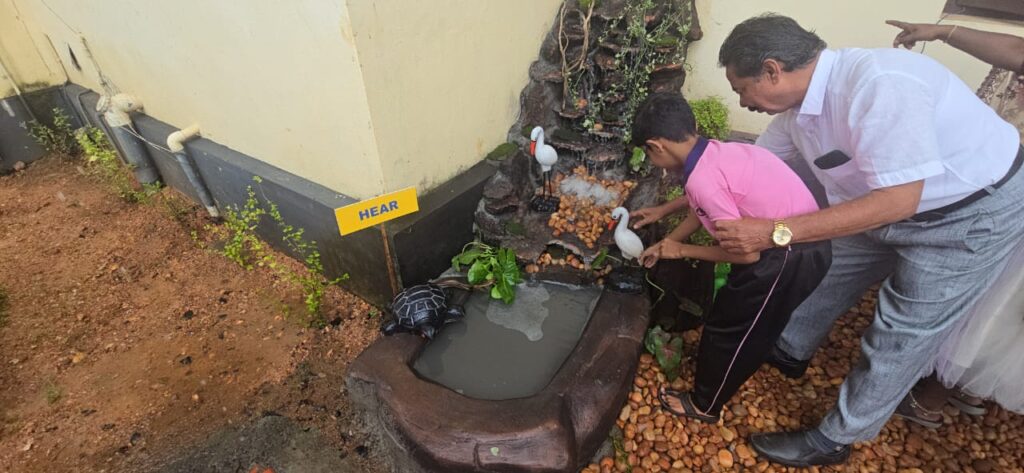
Multi-Sensory Engagement
- Touch: A variety of textures are included in the form of pebbles, sand, wood chips, tactile walls, and interactive sculptures that children can explore through touch.
- Sound: Elements like water fountains, wind chimes, and rustling plants enhance the auditory experience.
- Smell: Fragrant plants like lavender, mint, basil, rosemary, and citrus are placed throughout the garden to engage the sense of smell.
- Taste:Edible plants and herbs are included to allow children to experience the garden through taste.
- Sight: : While vision is limited or absent for many users, visually stimulating elements such as contrasting colours, movement of leaves, and different shapes still offer some sensory value and benefit those with partial sight.
Accessibility was central to the garden’s design. There are no steps or ramps, and the walkways are smooth and navigable by wheelchair. Braille signage helps children orient themselves, while shaded seating areas offer a place to rest and reflect. The plants are selected with care: non-toxic, thorn-free, and allergy-safe, giving parents and staff peace of mind. The garden is enclosed on three sides to create a secure, calm environment where children can explore with confidence.
The idea for the sensory garden grew from a request by the school, seeking a place where children could connect with nature. Leo District 318C responded, applying for and receiving a Leo Service Grant of US$1,500 from LCIF. This was supplemented by contributions from Lions, Leos and community supporters. After reviewing the school premises, a quiet, easily accessible space was chosen — close enough to raise public awareness, but private enough to be a sanctuary for the students.
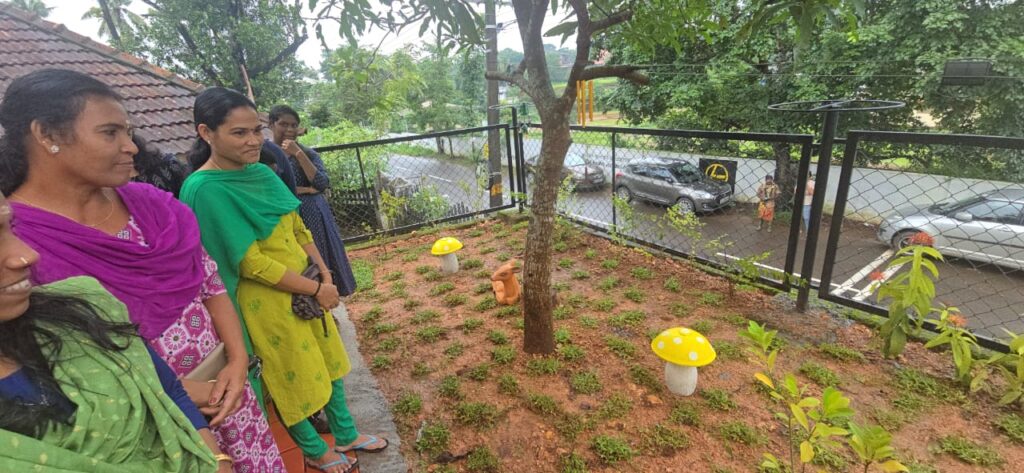
A beautiful example of community partnership and shared purpose, the sensory garden was inaugurated on June 28, 2025, by District Governor Rajan Namboothiri. PMCC Kurian John, Leo Advisor to District 318 C, designed the garden with meticulous attention, while Lion Vineetha Nibu, Leo District Advisor, transformed the vision into reality. Their collaboration demonstrates how thoughtful planning can create environments where disabilities become simply different ways of experiencing the world.
The garden serves 200 students at one of India’s leading institutions for visually impaired education. Each element was chosen to stimulate learning while ensuring safety. Children can tend edible plants, developing gardening skills that build a sense of independence. The space becomes a living classroom where botany, environmental science, and life skills merge seamlessly.
